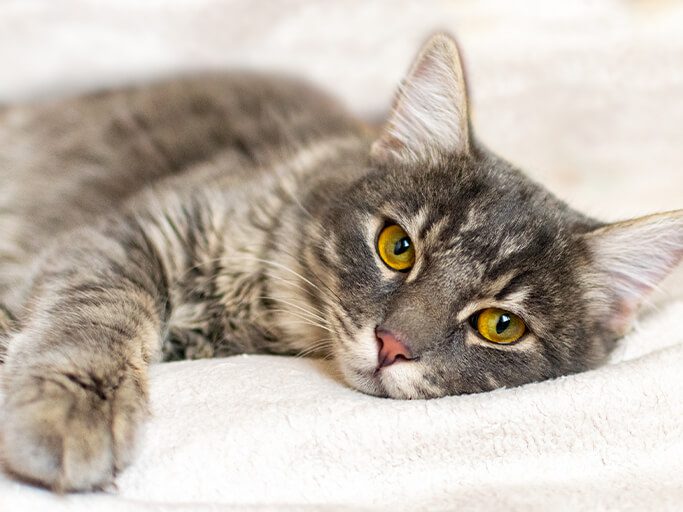My Cat Keeps Throwing Up in Pasadena, CA – Should I Call the Vet?
If you are a cat owner, you’ve probably seen your cat vomit at least once. Although vomiting may seem alarming, there are a lot of potential causes of vomiting in cats that are not too serious. However, some of the causes can be severe, so it’s important to try to figure out what’s going on with your feline friend.
Causes for Vomiting
In the article below, you’ll find out more information about the causes of vomiting in your cat. You can use this information to figure out when it might be time to schedule a visit with your veterinarian.

Hairballs
Hairballs are the most common cause of what cat owners perceive as vomiting. Hairballs involve coughing up clumps of hair from the stomach, but this may look and sound much like vomiting in your cat.
If your cat’s hairballs occur only every few weeks or so, you have nothing to worry about. Hairballs are a natural and normal part of your cat’s life, and they are not a cause for concern. If your cat is having a lot of hairballs or has trouble coughing them up, you can give her an over-the-counter pet laxative specifically for hairball purposes.
Eating Too Fast or Too Much
If your cat is the type who gorges herself on food every time you refill her dish, then she may frequently vomit because of eating too much. On the other hand, she may simply eat too fast and may cause herself to get sick instead.
In either of these situations, your cat may need to be given a slow feeder to help her calm down at mealtimes. Additionally, you may need to start providing her only a little bit of food at a time and increase the number of times you feed her throughout the day to prevent her from eating too much at once.
Food Allergies and Intolerance
Food allergies and food intolerances are much more likely to cause itchy, flaky skin and poor coat health in your cat than they are to cause stomach problems. However, some cats may still suffer from vomiting and diarrhea, or loss of appetite related to food allergies.
If your cat’s vomiting occurs within a couple of hours after she eats, you can probably assume the issue is related to food intolerances. You can try her on higher-quality food with a different protein source and see if it helps relieve the problem.
Intestinal Parasites
Cats may develop intestinal parasites, especially if they have not been to the vet for a dewormed in a long time. Even cats who have been dewormed may still pick up certain types of parasites, including giardiasis (giardia). If your cat has an intestinal parasite, she may suffer from frequent vomiting as well as diarrhea.
It is usually very easy to get rid of intestinal parasites in cats. You will need to take your cat to the vet to have her treated, but she should be able to get over the infestation with one or two rounds of medication. The vet will let you know if there is anything else you need to do to help your cat recover fully from her parasites.
Diseases
Many different types of diseases can potentially result in vomiting in cats. If your cat shows other symptoms along with vomiting, including diarrhea, lethargy, excessive drooling, lack of interest in food or water, or signs of pain, these can all point to an underlying disease causing the vomiting.
Thyroid issues frequently cause vomiting in cats, as do certain types of cancer. However, the illness your cat is dealing with could be something less severe, but it will be up to your vet to help you determine the diagnosis and treatment or management options for your pet.
Swallowing a Foreign Object or Toxic Substance
It is possible that your cat might swallow a foreign object or a toxic substance. If this happens, you will need to respond quickly and take your cat to the emergency vet right away.
If you know what your cat swallowed, bring it along to the vet as well. If you don’t know, but you suspect your cat has eaten something dangerous, tell the emergency vet as much as you can on your arrival.
Talk with a Veterinarian
As you can see, there are several potential causes of vomiting in cats, and some are a lot less severe than others. However, if you have any questions about what’s causing your cat to vomit, it’s a good idea to go ahead and take her to the vet. This way, the vet can tell you for sure what’s going on.
Don’t forget, too, that any signs of immediate distress along with vomiting should be treated as an emergency. There is always a risk that your cat could have swallowed a foreign object and may need to see an emergency vet right away.
To talk with the vets at Altadena Pet Hospital about your cat’s vomiting, call (626) 798-0738 or use the online form to book an appointment online!
